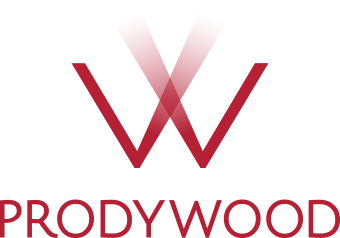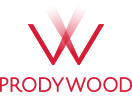French Labor Legislation is very strict and complex, Prodywood gives you here some of the rules we have to follow.
1. Temporary work permits
This paragraph regards exclusively shoots with non-European Union artists or technicians employed by the french company. To work in France, it does not suffice to enter and remain legally with visa on French territory. Foreign artists and technicians (non member of a state of the European Union) who come to France to temporarily perform their activity during shooting, are required to obtain a provisional work permit (APT). The employer (or, if he or she is foreign, his / her representative in France) will contact the “Unité Territoriale” (County’s employment department of the “Directions Régionales des Entreprises, de la Concurrence, de la Consommation, du Travail et de l’Emploi ») of the city the shooting will take place in. Prodywood will give you the appropriate services contact information according to the place of your shoot, as well as the complete list of the elements required to submit your request. It is advisable to initiate the procedure as early on as possible. According to article R 341-1-4 of the Labor Legislation, the foreign employee working in France will follow the work regulations (work hours, payment conditions, hygiene and safety measures etc.).
2. Social benefits legislation
As a rule, the French law applies to all the wage earners, regardless of their citizenship, working on French territory. European laws and international conventions (bilateral accord on Social Security) have created several exceptions. Their purpose is to avoid an employee having to pay Social Security in two countries at the same time, his country of origin and the country where he is temporarily employed (employee on secondment).
A. Social Security
Show business artists and technicians (« intermittents du spectacle») and permanent employees of production companies pay into a specific fund, the Caisse Nationale d’Assurance Maladie, which is one of 4 entities that cover virtually all French citizens. These funds cover illness, maternity, worker’s compensation, death, on-the-job accidents and occupational hazards. Writers and authors of literary, stage, screen, television and musical works, as well as graphic artists belong to the general Social Security scheme. Those whose work is connected to film and television production are covered by the Association pour la Gestion de la Securité Sociale des ArtistesAuteurs (AGESSA), which receives their payments and in turn manages their health and retirement benefits.
B. Unemployment insurance
Unemployment insurance is managed by the ASSEDIC. Permanent employees of production companies are covered by the overall unemployment insurance system. Show business artists and technicians («intermittents du spectacle») have a special system that, to a certain degree, affords them coverage for the periods between jobs.
C. Retirement fund
Retirement fund is handled by Social Security. Audiens manages complementary retirement funds IRPS, IRCPS, as well as health insurances : IPICAS, for show business artists and technicians («intermittents du spectacle »), and full time employees, for whom enrollment is undertaken by the employer at the time of hiring. Management level full time employees benefit from collective agreements set out by both the unions and professional associations (« conventions collectives », 14.03.47) which make compulsory their registration to the health insurance program. Management level show business artists and technicians benefit from a two fold insurance:
- working inability
- death or permanent working inability.
Audiens offers, with the MUDOS, Mutuelle complémentaire à la Sécurité Sociale, a scale of health insurance coverage.
3. Health and safety
Health and safety of cast and crew are essential responsibilities of a production. Employers have to go through two entities to cover these aspects of their responsibilities:
- the workplace medical service: all employees on a production must have passed a physical exam less than one year prior to the shoot
- the Committee on Hygiene, Safety and Working Conditions for the film and television industry (CCHSCT) is in charge of accident prevention and safeguarding the health and safety in the workplace observed. For all productions lasting more than 2 days, the production manager should send notification of « commencement de production » to the CCHS-CT, 2 weeks before the shoot starts.
4. Work Contracts
A. Collective agreements
Collective agreements establish job qualifications, minimum salaries and reimbursement of professional expenses (transportation, lodging, etc). Production companies must respect the elements of the collective agreements for a shoot in France as a base for negotiating work contracts. Like all employers, production companies must respect French Labor Legislation.
B. Work contracts
Work contracts for a specified, finite period for technicians and artists must be written and must include the employee’s salary. The employee must receive a copy of the contract, signed both by the employer and the employee, no more than 48 hours after he/ she has been hired. The employer must maintain a register of personnel. A work certificate mentioning the first and last days of the contract and a complete job description must be issued to the employee at the end of the contract.
5. Employment of child actors
The laws concerning the employment of children under 16 are strict; authorization is required. This authorization is necessary for children of all nationalities as long as the shooting takes place in France.
Request for child work permits must be made to the « Direction Départementle de la Cohésion sociale of the DIRRECTE » (ex Direction Départementale des Affaires Sociales et Sanitaires DDASS) in the department (county) where the production company has its headquarters, so for Prodywood its Paris. If these headquarters are overseas, request should be sent to the DDCS in Paris.
Several items are required for this application :
- a document giving the child’s civil status (D.O.B. etc.);
- written permission of parents or legal guardians;
- school certificate
- a list of employment previously held by the child;
- a health certificate from the Médecine du travail (Occupational Medicine Service)
- the script and a synopsis (in order to determine the difficulty and moral nature of the child’s role)
If the shoot is scheduled to last more than 3 days, the application should also include the written approval of the child’s school principal
Hours which may be worked are also limited and vary according to the child’s age.
The prefect will notify the applicant of its decision within a month after receiving the application. It is therefore important to apply for permission well in advance.
In order to work at night, you will need to fill out a request. If the request is authorized by enforces work safety and health standards), you will be granted the right to work from 8 pm to midnight.
if the child is lower than 3 years old, he can work one hour per day
From 3 to 6 years old, he will be allowed 2 hours per day
From 6 to 11 years old, he will be allowed 3 hours per day (4 during holiday time)
From 12 to 16 years old, he will be allowed 4 hours per day (6 during holiday time)


